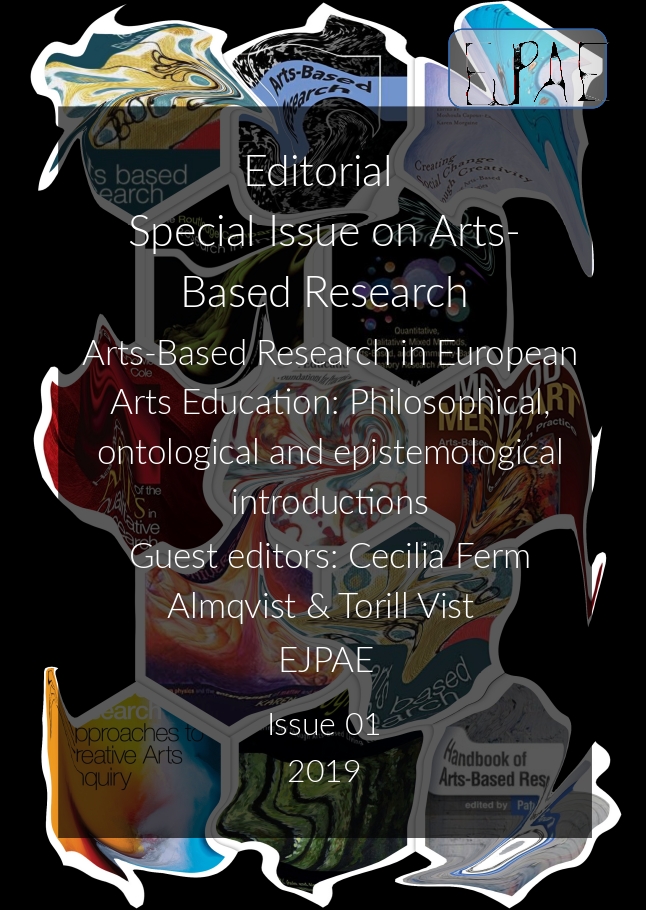Editorial Special Issue on Arts-Based Research
Arts-Based Research in European Arts Education: Philosophical, ontological and epistemological introductions
DOI:
https://doi.org/10.5281/10.5281/zenodo.3572351Abstract
Educational settings where arts subjects or aesthetic forms of expression (such as visual arts, music, dance, film, drama, fiction or poetry) play an important role are considered rather complex. Consequently, communicative and artistic aspects that constitute the arts educational phenomena can be difficult to understand, analyse, document and share, without the risk of losing important nuances. A growing research movement that aims to address these challenges is arts based research (ABR). We claim that ABR – with its variety of methodologies and onto-epistemologies – offers substantial support in grasping even more of the mentioned complexities. The question is, does it also lead us closer to a multi-modal turn?
Over the last few decades, ABR has become a common concept and research approach – one that also encompasses various phenomena related to arts education. When this special issue was first initiated (in 2018), Ferm Almqvist emphasised that the field of arts educational research has experienced several scientific turns, which have influenced what has been considered valid research, the methods that has been used, and the results that can be delivered. These turns have also influenced the researcher’s role and the relations between the perspectives and people that have been studied. She underlined that the interpretative turn, the language turn, the bodily turn, the ontological turn, the action turn, etc. have changed what can be achieved and in what ways within the field of arts education research. Nonetheless, these turns do not fully capture the complexities of arts educational phenomena.

Downloads
Published
Issue
Section
License
EJPAE provides immediate open access to all its published content. Users do not need to register or pay to read content.
https://creativecommons.org/licenses/by/4.0/
Authors of content published in European Journal of Philosophy in Arts Education (EJPAE) retain the copyright to their works. Content is free to be used by anyone as long as you "[...] give appropriate credit, provide a link to the license, and indicate if changes were made. You may do so in any reasonable manner, but not in any way that suggests the licensor endorses you or your use." and "No additional restrictions — You may not apply legal terms or technological measures that legally restrict others from doing anything the license permits." (from the Creative Commons licence agreement)
EJPAE does not charge any author or publication fees.
Authors are encouraged to deposit the final published version of their article for self-archiving (author's personal website) and/or archiving in an institutional repository immediately upon publication.




